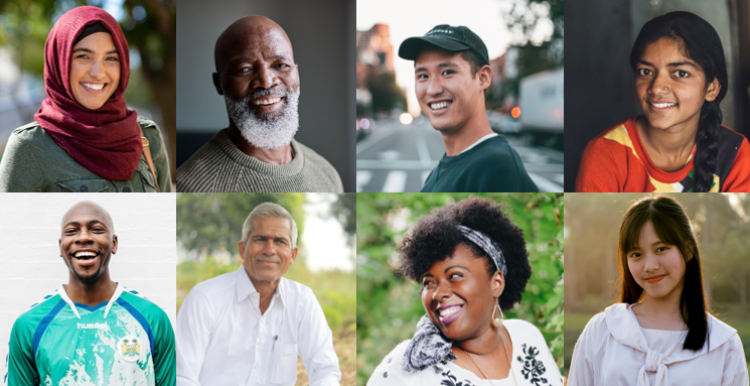Local healthcare needs to tackle discrimination, say Black and Asian communities

The Making Local Healthcare Equal: Healthcare concerns in Black and Asian communities Report launched today and is the first of its kind to explore the healthcare views and experiences of Hertfordshire’s Black and Asian communities, providing a rare insight into the deep mistrust and issues that underly these concerns.
In response, local NHS services have said they welcome this important research and will be using the findings and recommendations in our report to take urgent action and tackle ethnic health inequalities.
What we found
Using specialist insight and guidance from Black and Asian community leaders, we ran focus groups, interviews and online surveys. In total we heard from 156 Black and Asian Hertfordshire residents. Key findings included:
- Mistrust in the NHS stemmed from many places, including personal, family and friends’ negative lived experience, the disproportionate impact of Covid-19 on Black and Asian communities and broader existing ethnic health inequalities.
- Experiences of discrimination included the use of racial stereotypes and mistreatment from healthcare professionals. A lack of cultural understanding meant dietary, language, religious and cultural needs and preferences were not always respected or accommodated.
- Respondents felt healthcare professionals did not always fully understand conditions that primarily affected Black and Asian people, or how conditions might present on darker complexions. In some cases, this led to late or incorrect diagnoses.
- Racial stereotypes meant Black and Asian people were sometimes treated worse, or inappropriately, compared with their White counterparts.
- A lack of awareness meant some healthcare professionals did not understand the cultural complexities behind some mental health issues and suggested inappropriate solutions.
- Some NHS services relied on the patient or their loved ones to provide communication support, which was not sufficient or appropriate.
Our research showed it was not whether a healthcare professional intended to be discriminatory that was important, but how the patient felt. Crucially, healthcare providers needed to demonstrate that a patient’s voice has been heard and services were working to accommodate their cultural practices and values for the duration of their care.
Some respondents said their mistrust in the NHS extended as far as avoiding accessing healthcare or receiving medical treatment unless absolutely necessary. This potentially left medical conditions undiagnosed and untreated, impacting on an individual’s physical and mental health.
I’m extremely concerned about what local Black and Asian communities are telling us, but not entirely surprised. National data shows that Black and Asian people are more likely to feel undervalued and mistreated by the NHS and this has been replicated in our findings. However, the response from local NHS organisations has shown that they are committed to working with us and Black and Asian communities to overcome inequalities.
What happens now?
We made 16 recommendations to Hertfordshire’s healthcare providers and commissioners, as well as suggested learning opportunities for the Hertfordshire and West Essex Integrated Care System (ICS) and local Health and Care Partnerships. Some of these included:
- Improving the collection and recording of patient ethnicity data to better capture the health outcomes of Black and Asian patients.
- Ensuring complaints and feedback systems are more accessible and approachable, enabling Black and Asian patients to feedback with confidence.
- Building and sustaining genuine relationships and partnerships with Black and Asian communities.
- Ensuring that healthcare professionals are aware of, and responsive to, the cultural preferences and sensitivities of Black and Asian patients.
- Improving the recruitment, representation and retention of Black and Asian staff to ensure a more diverse workforce, reflective of the community it serves.
The responses to these recommendations will be monitored through our holding to account role, where we regularly meet with health and social care leaders to raise patient concerns and ensure services are taking action to remedy these.
The findings of this report make for troubling reading for Black and Asian communities. We, at CLCH, understand that we are to change our approach to healthcare provision in a way that accounts for the cultural differences and expectations of our diverse populations to make our services truly inclusive.
Read the full report
If you require this report in a different format, please contact us.


